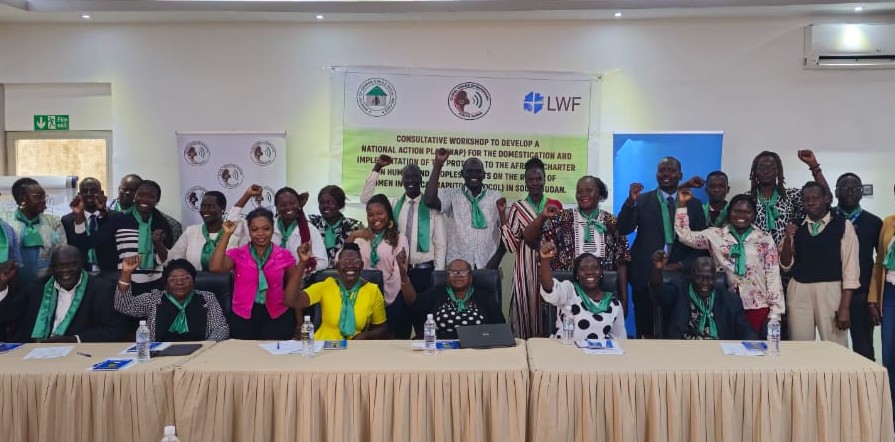
South Sudan has taken a significant step toward advancing women’s rights and gender equality by convening its first national consultative workshop to draft a National Action Plan (NAP) for implementing the Maputo Protocol.
Held from July 31 to August 1 at Palm Africa Hotel in Juba, the landmark workshop brought together 65 participants, including representatives from government ministries, civil society organizations, women’s rights groups, youth movements, academia, development partners, and UN agencies.
In a press statement delivered at the close of the workshop, Narumanga Jully, Communications Assistant at Global Voices, emphasized the urgency of moving from ratification to real change.
“South Sudanese women and girls cannot wait any longer. We must act now to translate this Protocol into practice.
“So, we are here to ensure that the ratification of the Maputo Protocol does not remain a symbolic gesture but becomes a lived reality for South Sudanese women and girls,” she said.
Participants also called for stronger coordination among institutions, increased public awareness, and sustained funding for gender-based initiatives.
“This marks a turning point,” said one participant. “For the first time, we’re not just talking about women’s rights—we’re mapping out how to make them a reality.”
The two-day meeting, supported by the Lutheran World Federation in partnership with the Ministry of Gender, Child and Social Welfare and Global Voices Organization.
It aimed to translate the 2023 ratification of the Maputo Protocol into real, enforceable national action.
Despite the ratification, participants noted that progress on implementation remains limited.
Key challenges identified include gender-based violence, harmful practices, limited legal reforms, low literacy rates among women, and the delayed fulfillment of the 35% affirmative action commitment under the 2018 peace agreement.
The workshop produced a set of agreed action points, including finalizing the NAP after regional consultations, translating the Protocol into local languages, establishing a Maputo Protocol Working Group, and aligning national laws such as the Penal Code and Family Law with the Protocol’s provisions.
As South Sudan enters a crucial phase of constitutional transformation and electoral preparation, stakeholders emphasized that gender justice must be at the core of the nation’s development agenda.
The message from the workshop was clear: the path to a just, inclusive future begins with full implementation of the Maputo Protocol.

